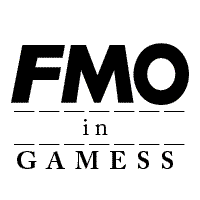Information
Last Update:2021/03/06
Official site
License
GAMESS license
| Availability | PC cluster |
|---|---|
| Core Developers | Kazuya Ishimura (Institute for Molecular Science), Michio Katouda (Institute for Molecular Science), Sigeru Nagase(Institute for Molecular Science), Dmitri G. Fedorov (National Institute of Advanced Industrial Science and Technology), Toyokazu Ishida (National Institute of Advanced Industrial Science and Technology), Masato Chiba (National Institute of Advanced Industrial Science and Technology), Takeshi Nagata (National Institute of Advanced Industrial Science and Technology), Hiroaki Umeda (Graduate School of Systems and Information Engineering, Tsukuba University), Kazuo Kitaura (Graduate School of System Informatics, Kobe University) |
| Target substance/model | Proteins, DNA/RNA, biopolymers, composites of low molecular weight organic compounds, and molecular aggregates |
| Physical quantities that can be computed | Total energy, energy gradient, Mulliken population, interaction energy between fragments, pair interaction energy (PIE) and its decomposition (PIEDA), electron density distribution (output as a cube file), solvation free energy, and electron excitation energy calculated using continuous dielectric models |
| Methodology | Fragment molecular orbital (FMO) method |
| Parallelization | Parallel computing by MPI is supported (an interface DDI provided by GAMESS developers is used as a rapper). |
| Related App | |
| Related keywords | |
| Document | D. G. Fedorov, K. Kitaura, J. Phys. Chem. A, 111, 6904-6914 (2007). |
| Other | The system is divided into small fragments; ab initio MO calculation is performed on fragment pairs; the results are then used to compute the properties of the entire systems. Calculation time is more or less proportional to the system size. GAMESS: http://www.msg.chem.iastate.edu/gamess/ |

